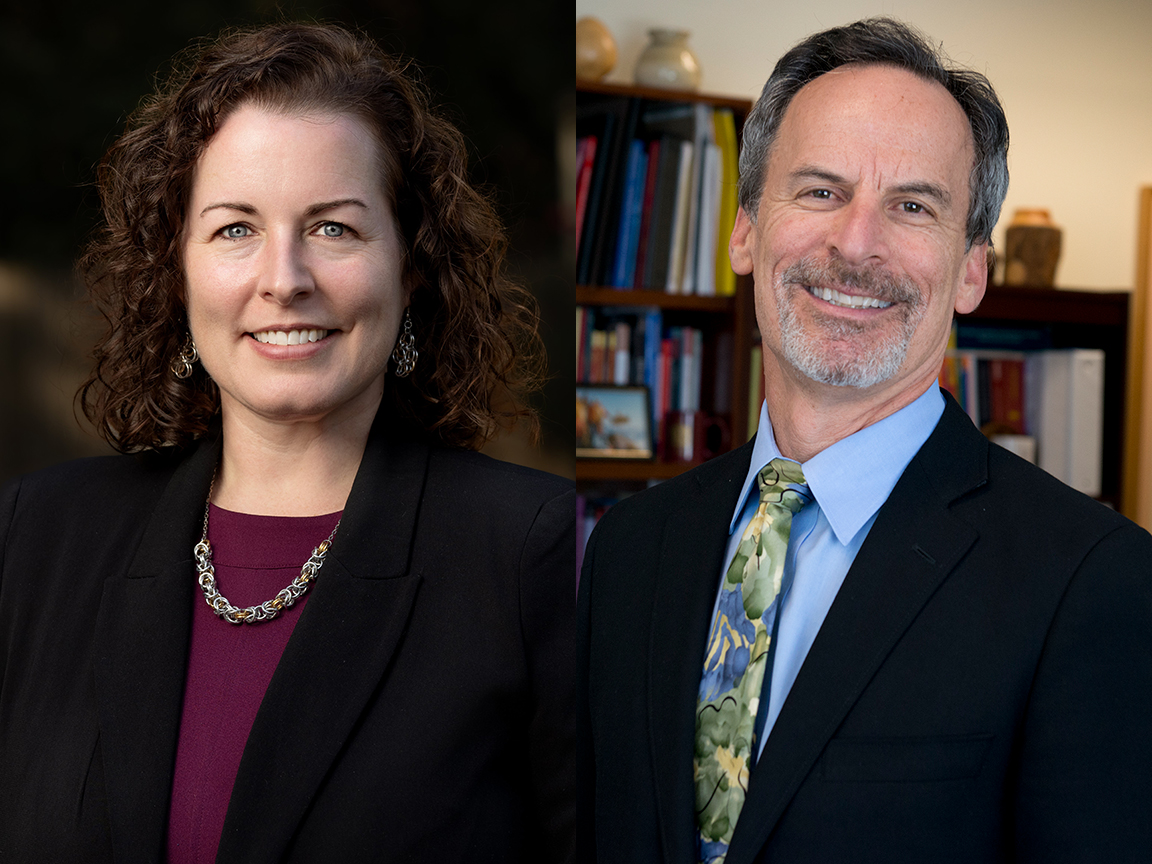Assistant Provost Amy Overman and Professor Steve Friedland discussed bias, the brain, and how neuroscience impacts the courts on Excited Utterance, a legal podcast that "aims to provide a weekly virtual workshop in the world of evidence throughout the academic year."
How people form implicit biases – and how those biases might affect the administration of justice – was the topic of discussion for two of Elon University’s top scholars recently featured on a popular legal podcast.
Assistant Provost Amy Overman and Professor of Law & Senior Scholar Steve Friedland spoke with host Alex Nunn of Excited Utterance about the scientific literature surrounding the human brain and whether the federal rules of evidence adequately attempt to remove unfair prejudice in a courtroom.
Throughout their 20-minute conversation in “Neuroscience, Neutrality, and the Rules of Evidence,” the duo explained how humans evolved by categorizing and processing information – much of it subconsciously – to determine in-groups as a means of survival and achieving goals that can’t be met on their own.
The problem? In a courtroom, it can be hard for jurors and judges to view defendants as individuals, not group members, and it can be equally difficult for them to reconcile the narrative they might want to believe with the facts of a case.
“The brain is a storyteller, but the stories it tells aren’t accurate,” Overman said in the podcast. “Often the stakes are low. But you can see in the legal system where the stakes are high that it has ramifications.”
Lawyers use biases all the time, Friedland added. Attorneys may attempt to strike potential jurors who would immediately sympathize with, or distrust, their clients. Then there’s the question of what type of evidence the jury should be allowed to see – the answer to which is influenced by the implicit biases of a judge.
“There are a lot of well-recognized holes, shall we say, in this chain-linked fence that’s supposed to keep out bias and unfair prejudice,” said Friedland, who added that he still advocates for juries. “We want biases to counteract each other. In the jury room, people can share their own views and all voices are heard.”
The January 30, 2023, podcast episode was an extension of scholarship that Overman and Friedland completed together. Their article “Neutrality and the Rules of Evidence” appeared in the Criminal Law Bulletin, one of the most widely read scholarly journals in the legal field.
An accomplished professor of psychology and administrator at Elon University, Overman’s scholarship and national expertise has been in researching memory, aging, the science of learning, and the brain. She has focused on episodic memory in older and younger adults, including how people remember context, temporal order, and make associations in memory.
Friedland is a founding member of the Elon Law faculty and a former federal prosecutor in Washington, D.C. He has published articles in multiple top law reviews, and his books on evidence law, constitutional law, criminal law and procedure, and law school teaching have been published by the West Publishing Company, Aspen Press, Lexis Publishing Company and Carolina Academic Press.



